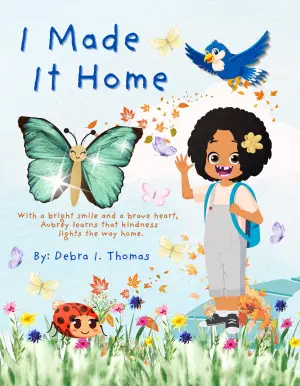Writers often struggle with choosing a topic that resonates deeply with readers. A common challenge they face is finding serious subjects that can engage while also providing insight into the human experience. The answer lies in identifying themes that provoke thought, stir emotions, and spark conversations. Here’s a list of serious topics that writers can consider exploring.
Table of Contents
Mental Health Awareness
Mental health is a critical topic that affects millions worldwide. Writers can delve into the intricacies of anxiety, depression, and other mental health disorders, illuminating the struggles individuals face and the stigma that often surrounds these issues.
For example, a narrative could follow a character navigating the complexities of living with obsessive-compulsive disorder (OCD). Through their experiences, the story can portray both the internal battles and the external misunderstandings that arise from society’s misconceptions.
Additionally, using real stories can enhance the narrative. Sharing experiences of people who have navigated mental health challenges offers readers hope and practical strategies they can use.
Environmental Issues
The fight against climate change and environmental degradation provides ample material for serious writing. Writers can tackle pollution, deforestation, and the loss of biodiversity to spark awareness and encourage action.
Consider a story about a small town facing ecological collapse due to governmental neglect. The characters could be a group of young activists rallying to save their local environment. This plot can not only highlight environmental issues but also showcase grassroots movements and the power of community engagement.
Another angle could involve a dystopian future where the consequences of climate inaction come home to roost. This speculative approach can make the seriousness of the issue relatable, prompting readers to reflect on their own actions.
Social Justice and Inequality
Themes of social justice and inequality are increasingly relevant in today’s world. Writers can explore issues related to race, gender, sexuality, and socioeconomic status to spotlight injustices and encourage dialogue.
For instance, a novel may follow a character from an underrepresented background striving for success while facing systemic barriers. The story explores the character’s experiences and the difficulties of moving through a world set up to hold them back.
Personal accounts or interviews with real individuals about their experiences with inequality can add depth, authenticity, and emotional weight to the narrative.
Technology and Privacy
As technology evolves, concerns around privacy and ethical use become more pronounced. Writers can tackle the implications of data collection, surveillance, and the consequences of a digitally connected society.
A fictional thriller could unfold around an individual whose life is turned upside down after finding out they are the victim of identity theft. As the story unfolds, the protagonist uncovers a larger conspiracy surrounding data privacy in a world where no one is truly safe online.
In a nonfiction piece, writers can explore real-world implications, citing examples of data breaches and their fallout while providing tips on protecting one’s privacy in the digital age.
Immigration and Refugees
The global refugee crisis offers a rich topic for writers to explore what it means to be human. Writers can highlight the struggles of immigrants and refugees, from adapting to new cultures to searching for a place of belonging.
A powerful narrative could be centered on a refugee’s journey, detailing their struggles to adapt to a new country while grappling with the trauma of leaving their homeland. The story can also explore what drove their migration, such as war, violence, or economic instability.
Using firsthand accounts or interviews from refugees can provide authenticity and foster empathy in readers, helping them understand the human side of immigration statistics.
Personal Identity and Self-Discovery
The quest for personal identity is a timeless theme that resonates with many. Writers can explore issues of race, gender, sexuality, and cultural background as individuals navigate the complexities of their identities.
This topic allows for multifaceted characters. For example, a coming-of-age story could follow a teenager coming to terms with their sexuality in a conservative community. The plot could highlight the internal conflicts they face as they strive to accept themselves while also seeking acceptance from those around them.
The narrative can also incorporate interviews or real-life experiences from individuals who share similar struggles, adding depth to the portrayal of personal identity.
The Impact of War and Conflict
The themes of war and conflict provide a backdrop for exploring human resilience and suffering. Writers can highlight the personal stories of people affected by war, focusing on loss, pain, and their means of survival.
A potential storyline could focus on a soldier returning home after deployment, dealing with PTSD while trying to reintegrate into civilian life. This narrative could highlight not only the personal impact of war but also the challenges faced by veterans in finding support and understanding in society.
Alternatively, nonfiction pieces can explore the devastating effects of war on communities, such as displacement, poverty, and mental health crises.
Addiction and Recovery
Addiction is a topic that touches many lives, either directly or indirectly. Writers can explore the complexities of addiction, including the struggles of addiction, the impact on families, and the journey to recovery.
A fictional narrative may explore the life of an individual grappling with substance abuse, detailing their descent into addiction and the toll it takes on their relationships and health. Later, the plot can shift to their recovery, highlighting both the setbacks and victories that come with trying to rebuild a life.
In addition, real-life stories from individuals recovering from addiction can provide valuable insight, highlighting the various paths toward sobriety and the importance of hope and support.
Gun Violence and Safety
Gun violence remains a pressing issue in many societies, inviting serious discussion and exploration. Writers can tackle the repercussions of gun violence on communities, individuals, and families through both fiction and nonfiction.
A gripping fictional tale could center on the aftermath of a shooting event, focusing on the survivors and the community’s healing process. The narrative could provide multiple viewpoints, illustrating the broader societal impacts, including mental health effects, public policy debates, and community activism.
In nonfiction, writers can highlight statistics and personal stories to paint a comprehensive picture of the issue while advocating for practical solutions.
Education and Its Challenges
The education system is rife with complexities that writers can explore and discuss. From systemic issues like equity and access to personal stories of triumph and difficulty, there is no shortage of material.
A story could feature a teacher in an underfunded school striving to make a difference against overwhelming odds. Through their eyes, readers see firsthand the daily challenges faced by both educators and students, while also catching memorable stories from students as they try to shape their futures.
Nonfiction pieces can highlight current debates in education, such as standardized testing, curriculum choices, and the impact of technology, offering insights into the ways to improve the system.
Additional Information
Writers often overlook intriguing topics that can enhance their narratives and engage readers. Here are some lesser-known secrets:
- The Psychology of Color: Different colors evoke specific emotions and reactions. Writers can use this knowledge to influence the mood of their stories or characters.
- Lost Manuscripts: Classic books often draw inspiration from lost or unfinished manuscripts. Researching these can inspire original plots or spin-offs.
- Cultural Appropriation vs. Appreciation: Understanding the nuances between these two concepts is vital. Writers can infuse authenticity into their work by respecting cultural elements while avoiding appropriation.
- The Power of Dinner Table Conversations: Simple dinner conversations have sparked many bestselling books. Listening to family or friends can uncover genuine experiences that resonate with readers.
- Setting as a Character: Writers often overlook that setting can have its own arc and development. When thoroughly developed, a setting can act as a character that influences the plot and the protagonists.
- Historical Relevance: Different historical events can serve as backdrops for fiction, often enriching the narrative. Exploring lesser-known historical events can captivate an audience by presenting fresh perspectives.
- The Art of Obscure References: Layering in lesser-known references can add depth to a narrative. These can be from art, literature, or science, providing readers with an interactive experience through research.
- Letter Writing Revival: With digital communication dominating today, traditional letter writing can serve as a unique narrative device in stories, reflecting character intimacy and growth.
- Genres Overlap: Many writers stick to one genre. Mixing genres, though, opens up new and original ways to tell stories.
- Discovering how elements of sci-fi or fantasy can mingle with romance can surprise readers.
- Prologues and Epilogues: These often-overlooked sections can frame a story powerfully, revealing backstory or hints at the future, offering readers a satisfying narrative closure.
- Voice of Objects: Giving inanimate objects a voice can enrich storytelling. For instance, narrating a story from the perspective of a beloved book can create a fresh and imaginative perspective.
- Unwritten Rules of Dialogue: Real conversations often include interruptions, stutters, and even awkward silences. Incorporating this realism into dialogue can add authenticity and relatability to characters.
- The Role of Music: Soundtracks can inspire mood and tone. Writers can create playlists that correspond with scenes, deepening the emotional impact during the writing process.
- Uncommon Metaphors: Using unusual comparisons can spark interest and provoke thought. For example, likening a character’s growth to an obscure event can create memorable imagery.
- Silent Characters: Characters that do not speak can still be influential in a story. Their actions, thoughts, and interactions with other characters can reveal a lot, offering unique narrative opportunities.
- The Secret Life of Side Characters: Side characters often serve background purposes. However, developing their backstories can add layers to the main narrative and foster deeper reader connections.
Frequently Asked Questions (FAQs) Related to Writing about a Serious Topic
Q. What are some important social issues that writers can explore?
A. Writers can tackle social issues like poverty, education inequality, racial discrimination, climate change, and mental health awareness.
Q. How can writers address political topics in their work?
A. Writers can engage with political topics by discussing current events, government policies, elections, and the impact of political decisions on everyday life.
Q. What role do human rights play in writing?
A. Human rights issues, such as freedom of speech, gender equality, and refugee crises, can be examined to raise awareness and promote advocacy through storytelling.
Q. Can writers focus on environmental topics?
A. Yes, writers can write about environmental challenges, sustainability practices, and the importance of conservation to inspire action for a healthier planet.
Q. How can personal experiences relate to serious topics?
A. Writers can share personal stories that reflect broader societal issues, helping readers connect emotionally while shedding light on important themes.
Q. What is the significance of mental health topics in writing?
A. Writers can shine a light on mental health by discussing stigma, personal struggles, and coping strategies, which can provide support and foster understanding.
Q. How can technology be a serious topic in writing?
A. Writers can use technology and explore its impact on privacy, communication, automation, and ethical dilemmas, offering insights into our evolving digital landscape.
Q. What historical events should writers consider?
A. Writers can look into significant historical events, such as wars, civil rights movements, and revolutions, which can provide context and lessons for today’s society.
Q. How can economic issues affect writing themes?
A. Writing about economic issues such as unemployment, economic inequality, and inflation can highlight the struggles people face and provoke thought on potential solutions.
Q. What role does education play in serious writing?
A. Writers can use education as a vital topic, addressing issues of access, quality, and the importance of lifelong learning in the face of a changing world.
Conclusion
Writers have a vast landscape of serious topics to explore. By tackling subjects such as mental health, climate change, social justice, and the impact of technology, you can engage readers and provoke meaningful discussions. Each topic not only enriches your writing but also offers an opportunity to shine a light on issues that matter. So, grab your favorite writing tool and start turning your thoughts into words that inspire change and awareness. Happy writing!







